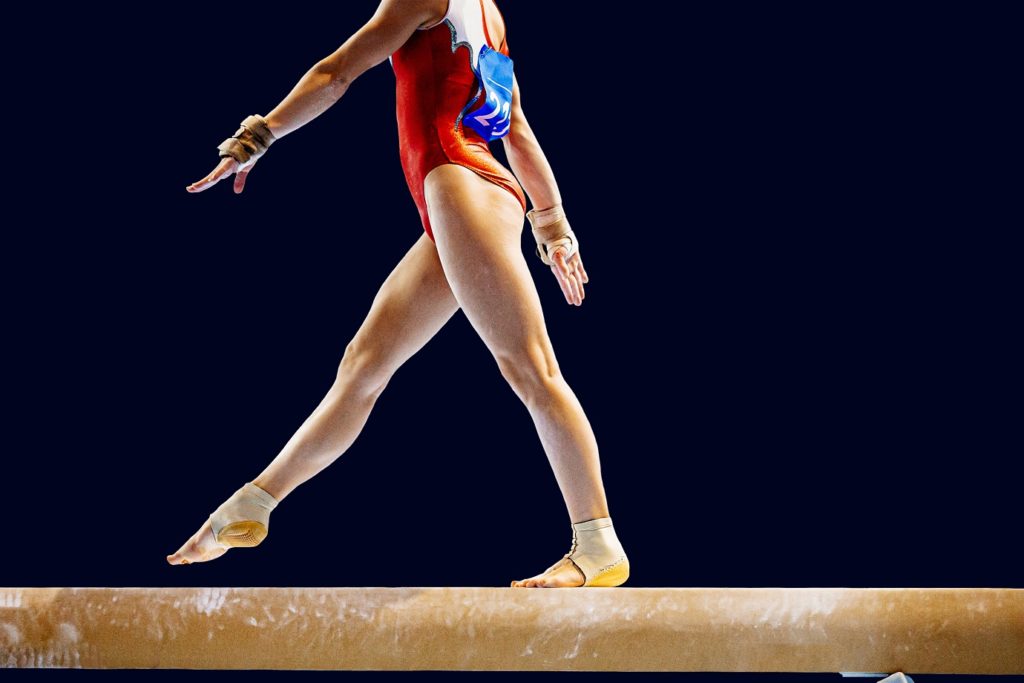Netflix’s documentary Athlete A has sparked a reckoning within the gymnastics community in Australia, as a group of gymnasts including Olympians and Commonwealth Games medallists, have detailed experiences of alleged abuse within the sport.
Multiple ex-gymnasts have spoken out about body shaming and physical and emotional abuse from coaches as an entrenched part of the culture of the sport.
Mary Anne-Monckton, a two-time winner silver medallist at the 2014 Commonwealth Games and a three-time World Championship team member, says the Athlete A documentary which followed the American gymnasts who survived Larry Nassar’s abuse, brought up “a lot of old memories, painful ones that I had pushed down so deep.”
“I, like so many others, have experienced body shaming, have had food withheld, been yelled at until I cried (even as an adult athlete, which is downright embarrassing), and been manipulated and ‘forced’ to do things that I was not physically ready for or capable of doing, which ultimately led to career ending injuries,” she wrote on Facebook.
“This culture has been normalised within our sport and has impacted many young gymnasts lives. These negative experiences have left me with deep scars and will take years to heal.”
Chloe Gilliland (nee Sims), the winner of a gold medal at the 2006 Commonwealth Games, wrote on Facebook that as a teenager, coaches called her “overweight” and “too heavy”. She says she suffered from bulimia and an anxiety disorder, and at one point, had considered ending her own life.
“At my supposed peak I was an anxious, stressed and depressed teenager. In this photo I was 17 years old, 150cm tall and weighed just 52kg. I remember it clearly because I was obsessed with losing 2kgs and getting under 50kg. So much so, that I would often make myself sick or try to starve myself out of fear of not making progress towards the ‘right’ weight, as determined by my coaches,” she wrote.
“At 17 despite receiving sports psychology and dietician advice, I felt it was easier to end my own life than to give in to what they wanted me to be.”
Olivia Vivian, a gymnast who represented Australia at the Beijing Olympic Games in 2008, says her treatment during her time as an athlete made her feel like a ‘broken person’.
“For the most part, I remember lots of yelling and many forms of criticism,” she wrote on Instagram.
“To add to the hurtful words and constant threats to get me to ‘do my job’, I remember the pressure to perform during practice and competition and how overwhelming it felt at times. In a world where you don’t feel like you can seek help anywhere, we’d turn to each other or find other outlets to try and release somehow.”
After these stories from ex-gymnasts began circulating on social media, Gymnastics Australia CEO Kitty Chiller released a statement, saying there is “zero tolerance” for abuse within the sport.
“We acknowledge and applaud those who have spoken up – their courage and their voice. We see the passion that people have for the great things about our sport and we are grateful to all of you who want to help us make our sport as safe and supportive as it can be in the future. We are here to help you and to support you and we genuinely want to hear about your experiences and your suggestions,” the statement said.
“We acknowledge that speaking up is difficult. I want you to know that we are here to listen. And we are here to act.”
Gymnastics Australia will be creating ‘listening groups’, where individuals within the gymnastics community can contribute to improving the organisations procedures regarding alleged abuse.
“To this end we will be setting up ‘Listening Groups’ so we can hear from our community either individually or in groups – to discuss what support we have in place and how we can further improve. These Groups will be athlete-led and athlete-driven.”
If you or someone you know is in immediate danger, call 000.
If you need help and advice, call 1800Respect on 1800 737 732, Men’s Referral Service on 1300 766 491 or Lifeline on 13 11 14.


